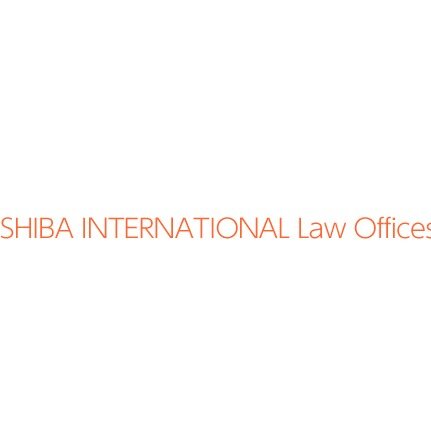Best Private Equity Lawyers in Tokyo
Share your needs with us, get contacted by law firms.
Free. Takes 2 min.
List of the best lawyers in Tokyo, Japan
About Private Equity Law in Tokyo, Japan
Private equity (PE) refers to investments made in private companies or in public companies with the aim of taking them private, typically to restructure, grow, or sell at a profit. In Tokyo, Japan, private equity has gained significant attention as a dynamic area for both domestic and international investors. The Tokyo financial market is one of Asia's largest and most active, attracting a variety of PE funds seeking to participate in sectors such as technology, manufacturing, healthcare, and real estate. Private equity transactions in Tokyo are subject to a complex regulatory environment designed to maintain stable markets, protect stakeholders, and encourage professional corporate governance.
Why You May Need a Lawyer
Engaging in private equity transactions in Tokyo can be challenging due to the intricacies of Japanese law and business culture. There are several situations where professional legal advice is essential, including:
- Structuring or establishing private equity funds in Japan
- Conducting due diligence on potential investment targets
- Negotiating and drafting share purchase agreements, shareholder agreements, or other transaction documents
- Navigating regulatory approvals and filings, especially from the Financial Services Agency (FSA) and the Bank of Japan
- Assisting with mergers, acquisitions, corporate restructuring, or management buyouts
- Ensuring compliance with Japanese laws, including the Financial Instruments and Exchange Act (FIEA) and the Companies Act
- Handling disputes between investors, sponsors, or management teams
- Addressing tax issues pertinent to private equity transactions
Local Laws Overview
Private equity in Tokyo is impacted by multiple local laws and regulations. Some of the key aspects include:
- Financial Instruments and Exchange Act (FIEA): This central law governs securities, including the offering of fund interests, disclosure requirements, and anti-fraud provisions.
- Companies Act: Sets out the legal framework for establishing, managing, and restructuring corporations in Japan, including shareholder and director rights.
- Foreign Exchange and Foreign Trade Act (FEFTA): Regulates foreign investment in Japanese companies, especially in sensitive industries like defense or infrastructure, by requiring prior notification and approval for certain transactions.
- Competition Law: Overseen by the Japan Fair Trade Commission (JFTC), the Anti-Monopoly Act affects mergers and acquisitions that may impact market competition.
- Taxation: Includes corporate, capital gains, and consumption taxes on PE transactions, which can materially affect deal structure and returns.
Expert legal guidance is often essential to manage the intersection of these laws and to fulfill compliance obligations in any private equity transaction in Tokyo.
Frequently Asked Questions
What is the process for establishing a private equity fund in Tokyo?
Establishing a private equity fund typically involves choosing a proper legal structure, preparing offering documents, registering with financial authorities as necessary, and meeting ongoing regulatory and reporting requirements under the FIEA.
Are foreign investors allowed to participate in private equity deals in Tokyo?
Yes, foreign investors can participate, but they must comply with the Foreign Exchange and Foreign Trade Act and may require government approval in certain sectors.
What disclosures are required when investing in a Japanese company?
Under the FIEA, depending on deal structure and thresholds, disclosure of major shareholdings, tender offers, or post-transaction filings may be necessary to ensure transparency.
How is due diligence conducted in Tokyo private equity transactions?
Due diligence involves a thorough review of the target company's finances, legal standing, contracts, intellectual property, and compliance with local regulations, often with the help of specialist lawyers and accountants.
Do private equity deals in Tokyo require regulatory approval?
Some deals, especially those involving certain sectors or foreign investors, may require pre-closing regulatory approval or notifications to authorities such as the FSA or JFTC.
What are common exit strategies for private equity in Japan?
Common exit routes include initial public offerings (IPO), trade sales to strategic buyers, or secondary buyouts (sale to another PE fund).
How are PE transactions taxed in Tokyo?
Taxes can include capital gains tax, corporate tax, and consumption tax. The structure of the investment and exit will affect the overall tax burden. Tax advice is essential.
What is management buyout (MBO) in the Japanese context?
MBOs involve a company's management team acquiring the business, often with PE backing. These transactions must comply with local corporate and securities law, and sometimes face unique cultural or procedural challenges.
How are shareholder rights protected in Japan?
The Companies Act provides for significant shareholder rights, including voting, information access, and dissent rights. Shareholder agreements often supplement these rights in PE deals.
How can disputes arising from PE investments be resolved?
Disputes can be resolved through negotiation, mediation, arbitration, or litigation. Many PE agreements specify arbitration in Japan or another neutral venue.
Additional Resources
Several organizations and governmental bodies offer guidance or oversight for private equity activities in Tokyo:
- Financial Services Agency (FSA) - Regulates financial markets and institutions
- Japan Fair Trade Commission (JFTC) - Monitors competition and antitrust issues
- Ministry of Economy, Trade and Industry (METI) - Provides information on investment regulations and incentives
- Japan Private Equity Association (JPEA) - Offers information and networking opportunities for industry professionals
- Tokyo Stock Exchange (TSE) - Information on public market transactions and listings
- Major law firms and consultancies in Tokyo with specialized private equity practices
Next Steps
If you are considering investing, establishing a private equity fund, or navigating an M&A transaction in Tokyo, it is crucial to seek experienced legal counsel early in the process. Start by gathering essential documents and outlining your objectives. Contact a reputable law firm or legal advisor in Tokyo with expertise in private equity. They will assess your unique circumstances, guide you through regulatory requirements, assist with negotiations, and ensure compliance with Japanese law. Timely legal advice can not only mitigate risks but also add value to your private equity transactions in Tokyo, Japan.
Lawzana helps you find the best lawyers and law firms in Tokyo through a curated and pre-screened list of qualified legal professionals. Our platform offers rankings and detailed profiles of attorneys and law firms, allowing you to compare based on practice areas, including Private Equity, experience, and client feedback.
Each profile includes a description of the firm's areas of practice, client reviews, team members and partners, year of establishment, spoken languages, office locations, contact information, social media presence, and any published articles or resources. Most firms on our platform speak English and are experienced in both local and international legal matters.
Get a quote from top-rated law firms in Tokyo, Japan — quickly, securely, and without unnecessary hassle.
Disclaimer:
The information provided on this page is for general informational purposes only and does not constitute legal advice. While we strive to ensure the accuracy and relevance of the content, legal information may change over time, and interpretations of the law can vary. You should always consult with a qualified legal professional for advice specific to your situation.
We disclaim all liability for actions taken or not taken based on the content of this page. If you believe any information is incorrect or outdated, please contact us, and we will review and update it where appropriate.













